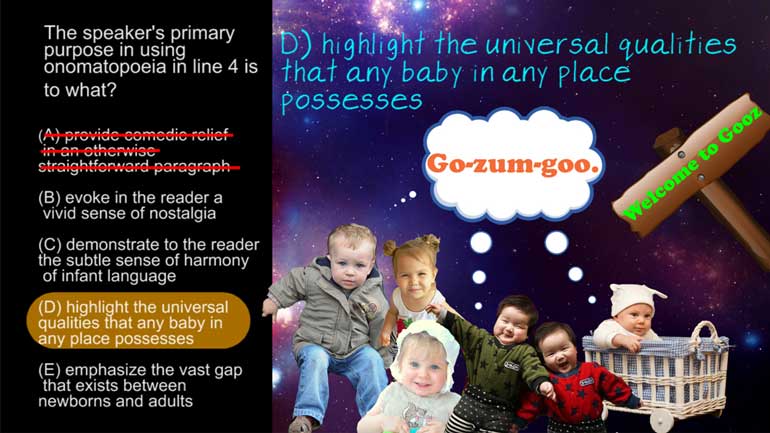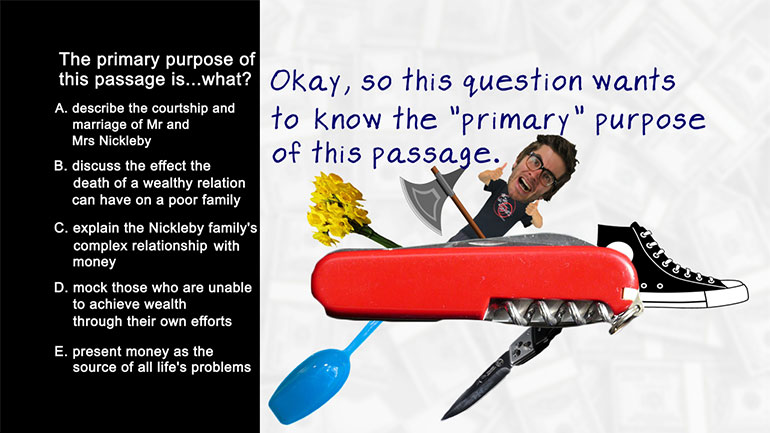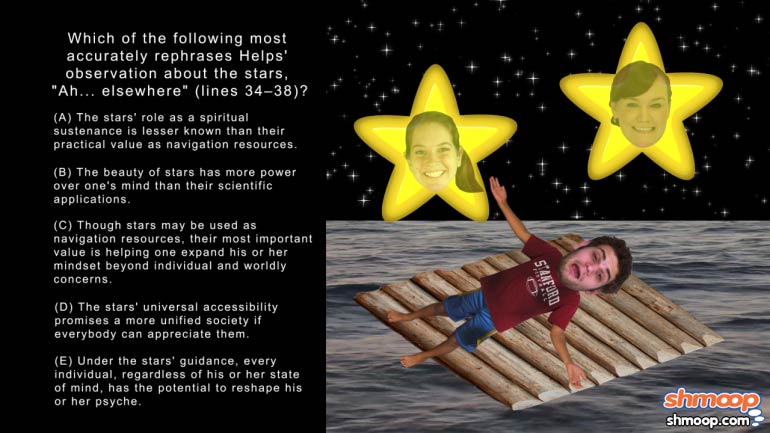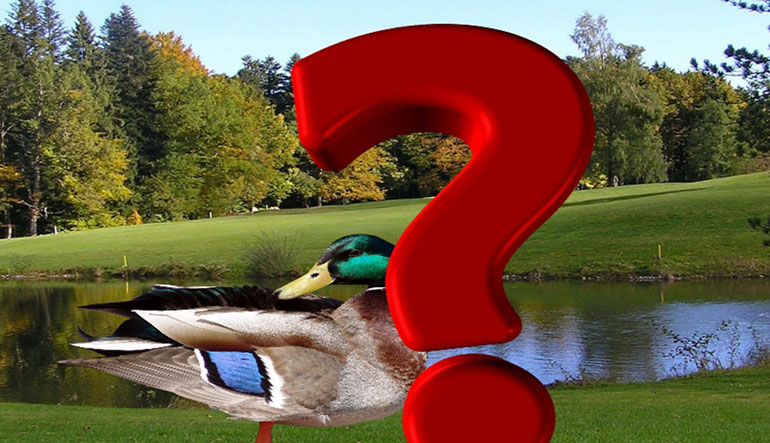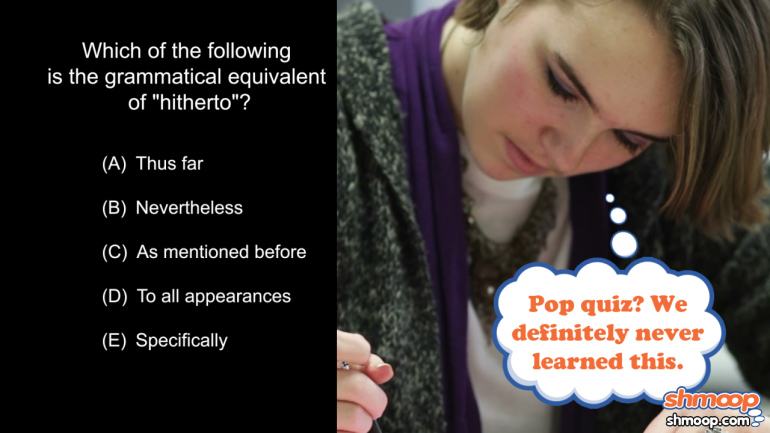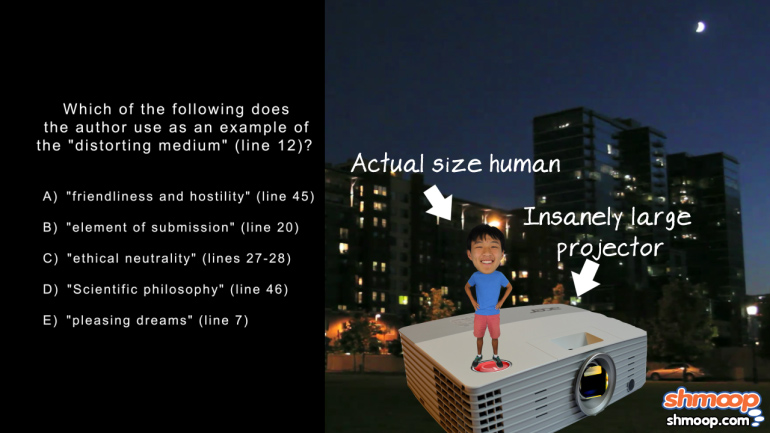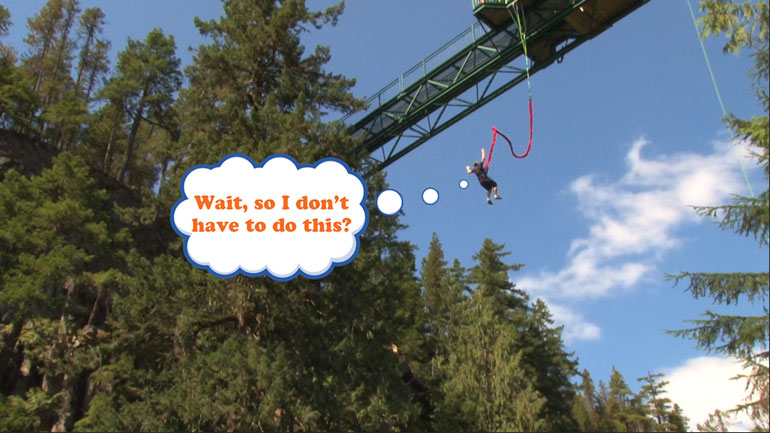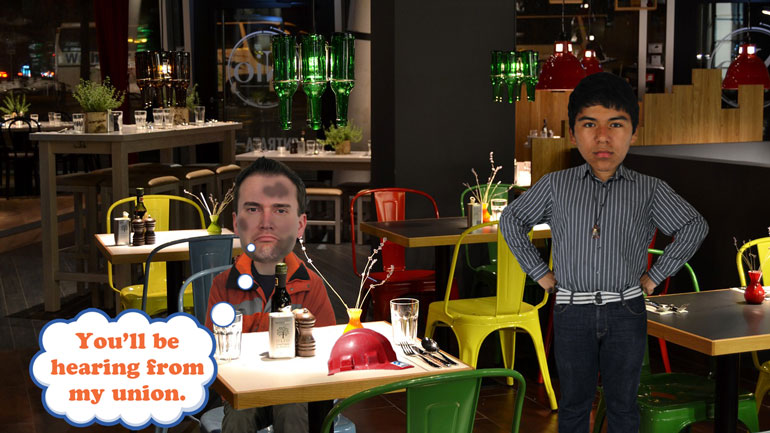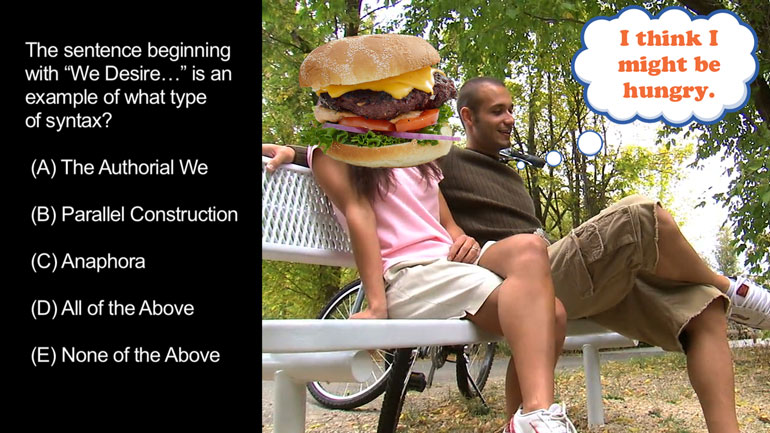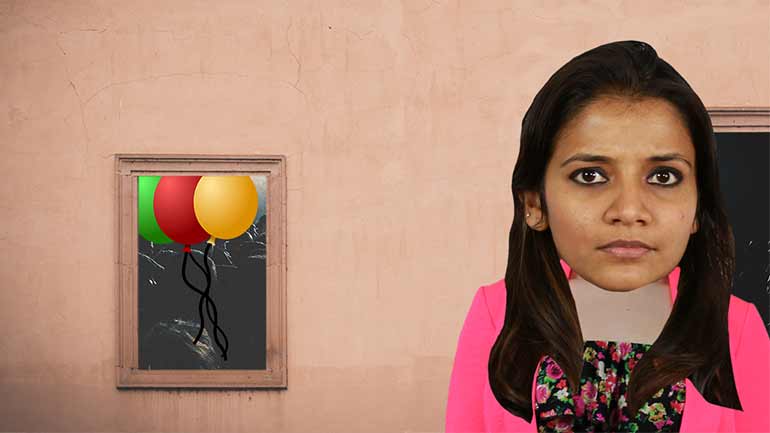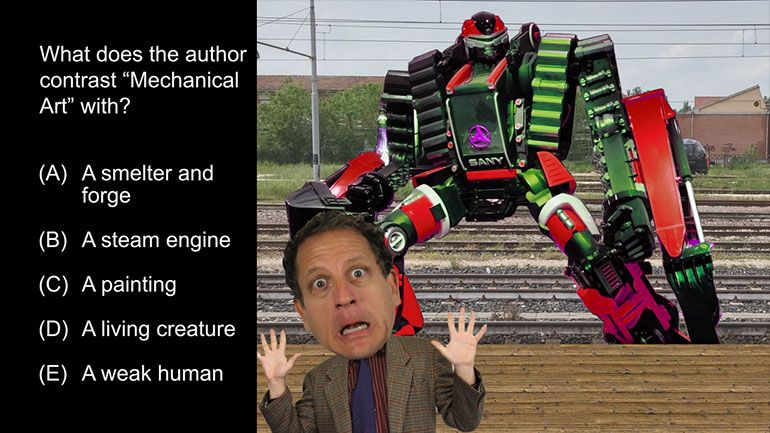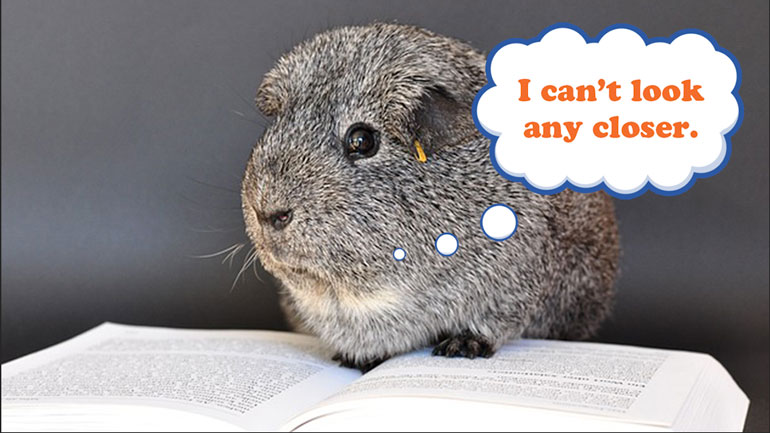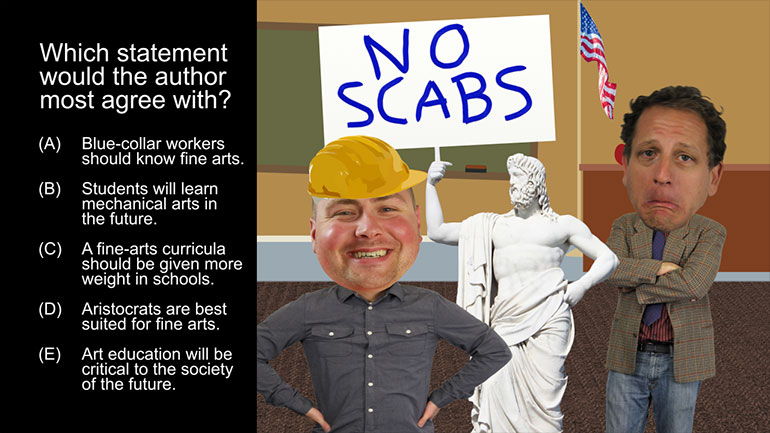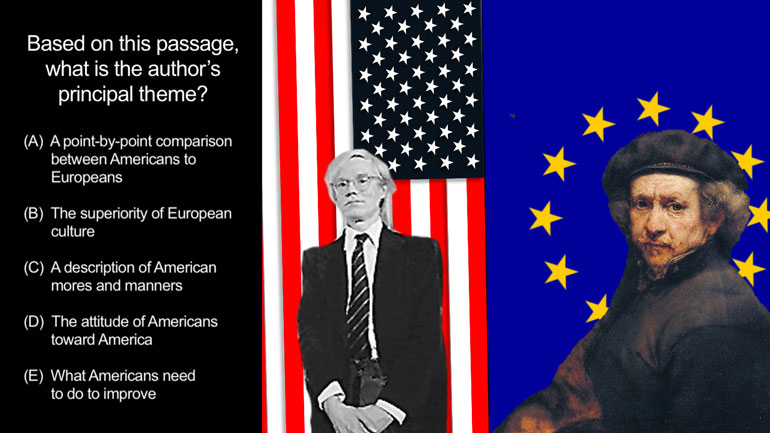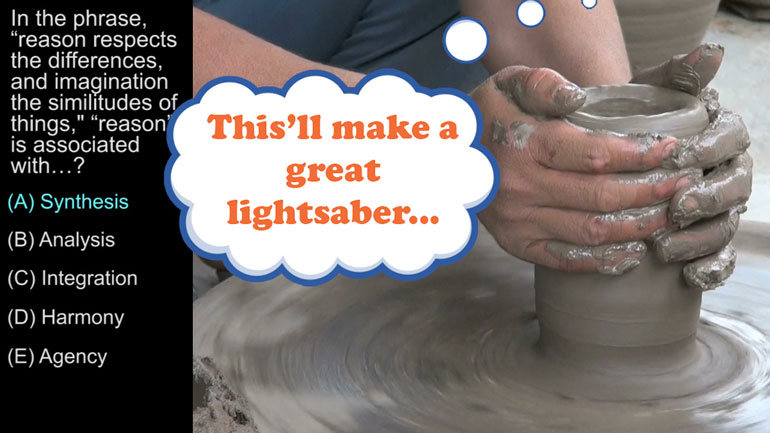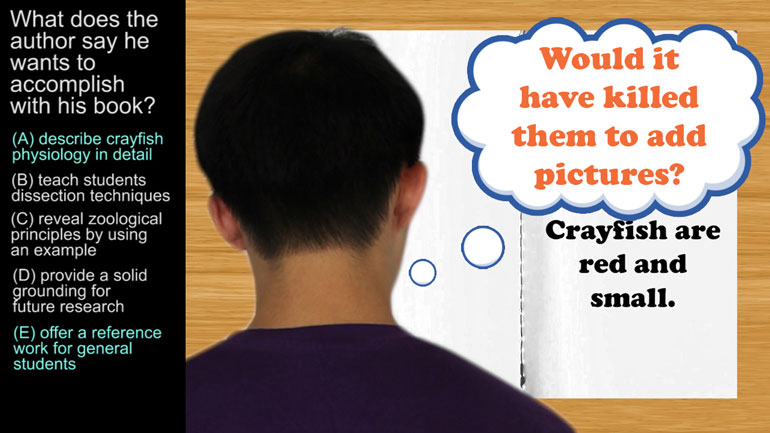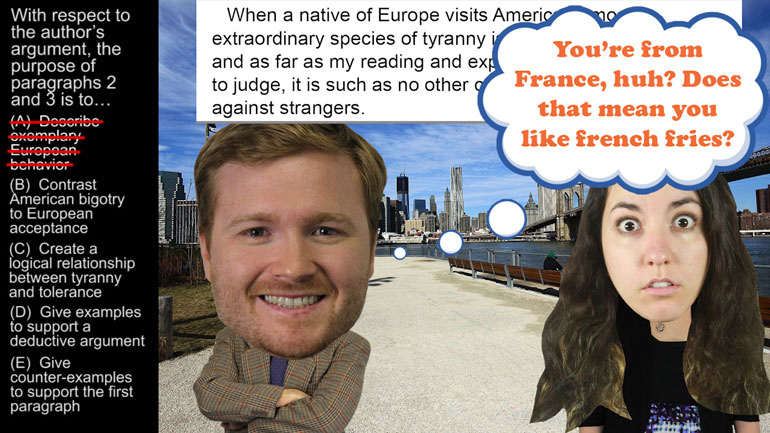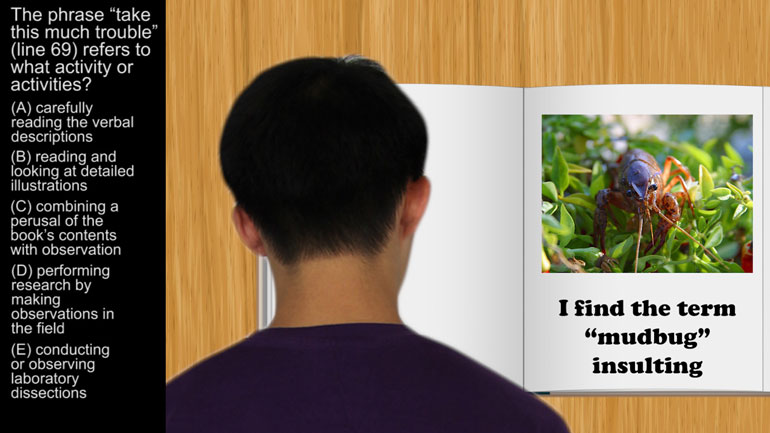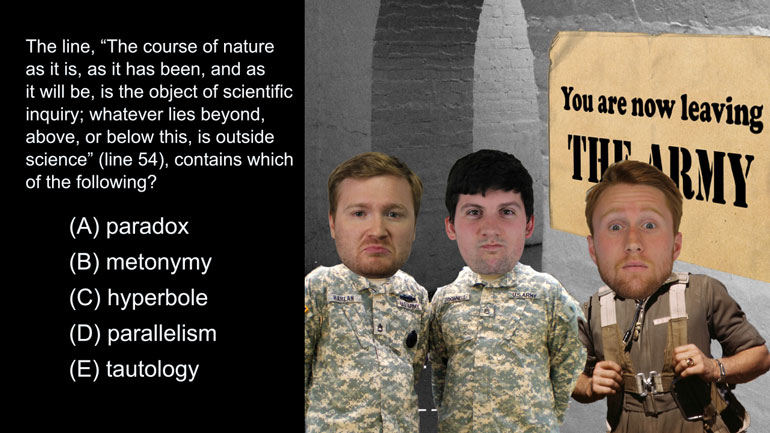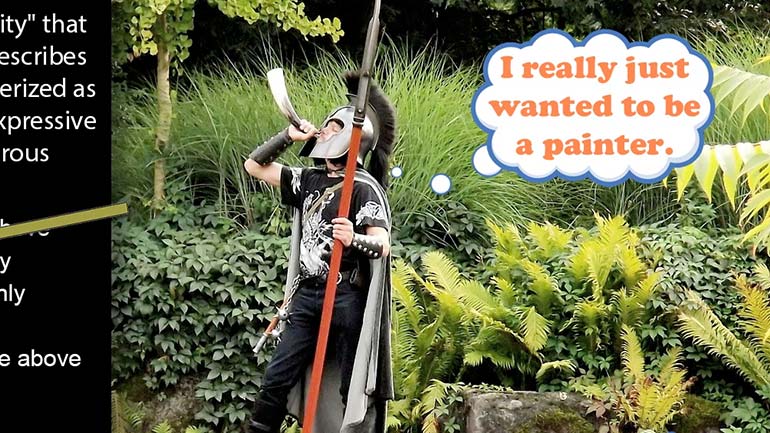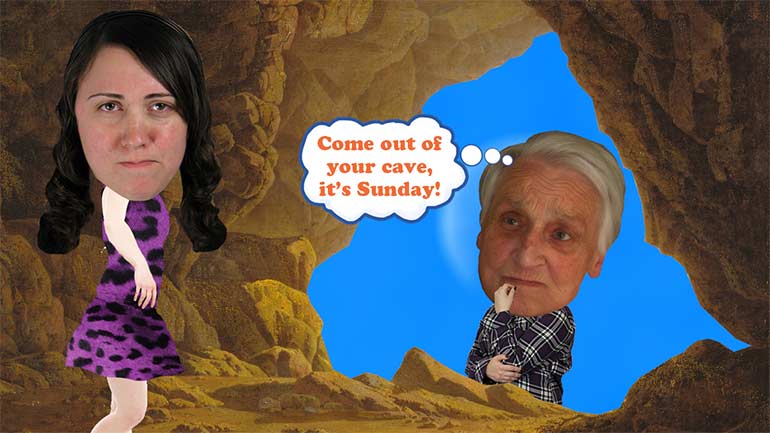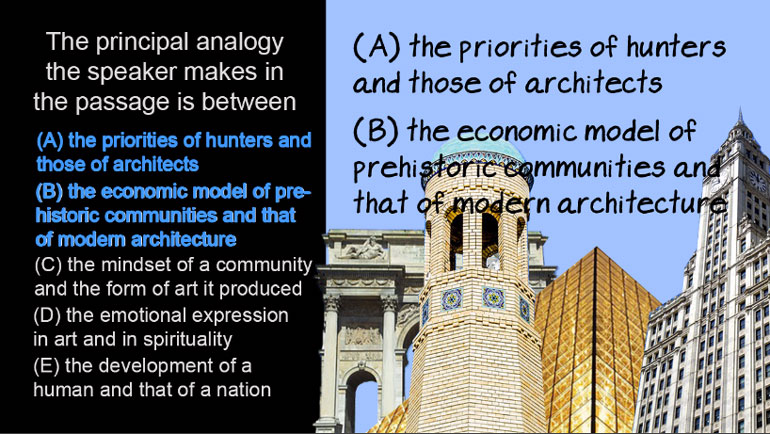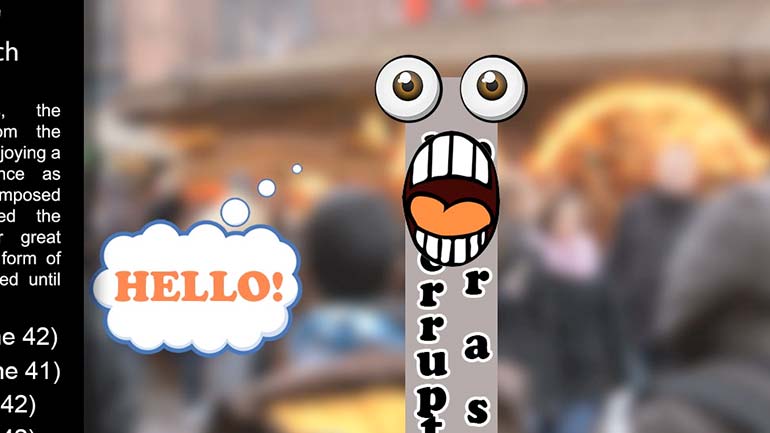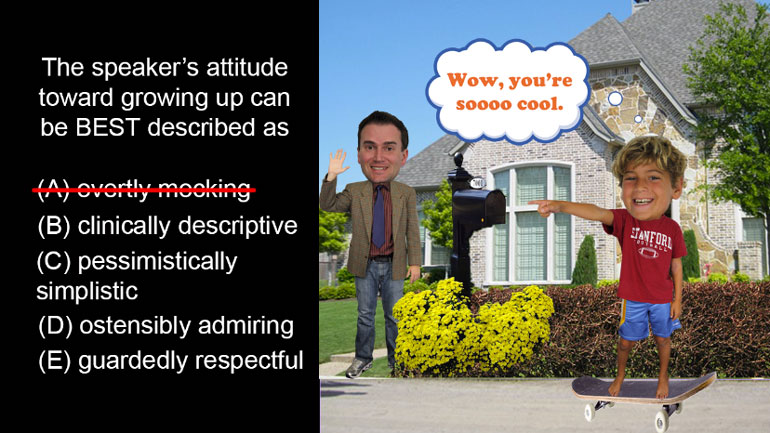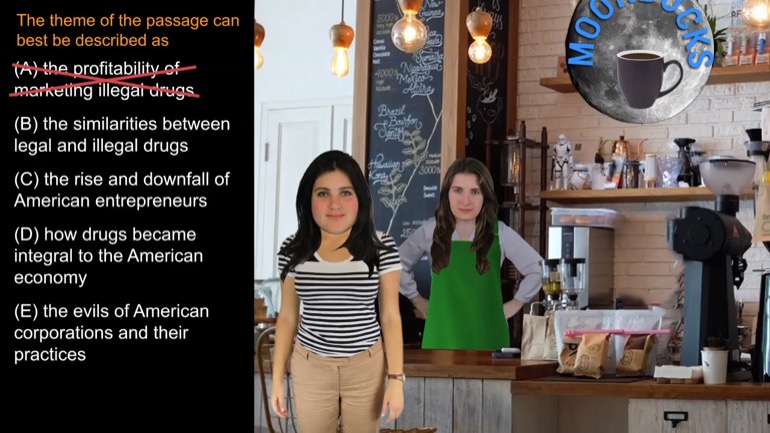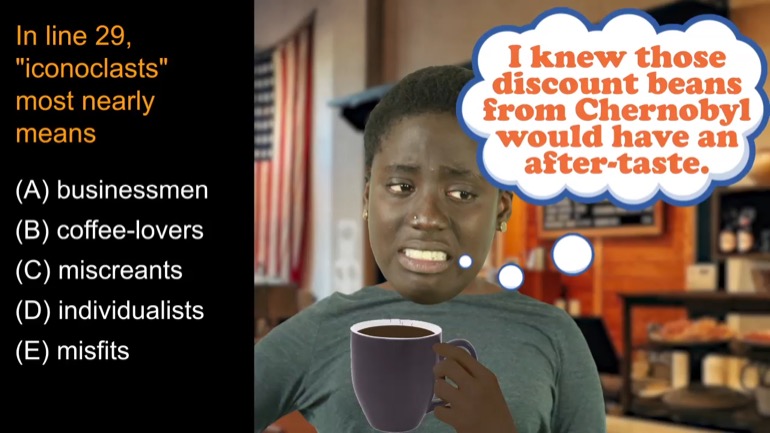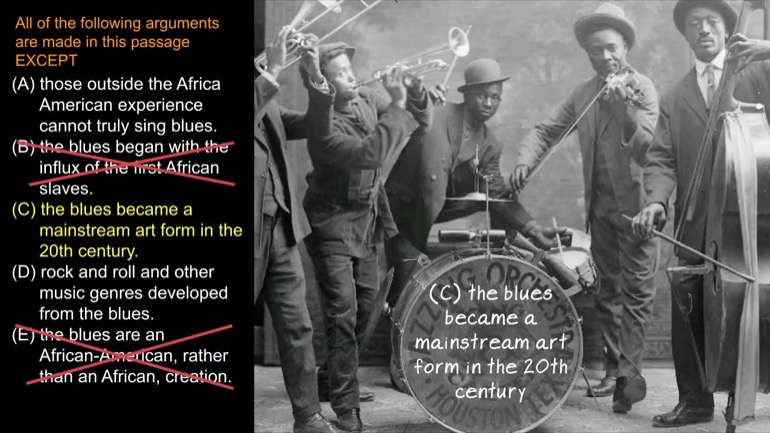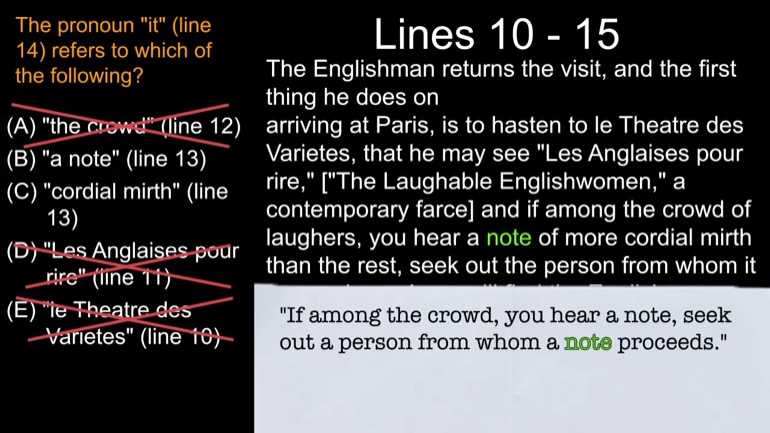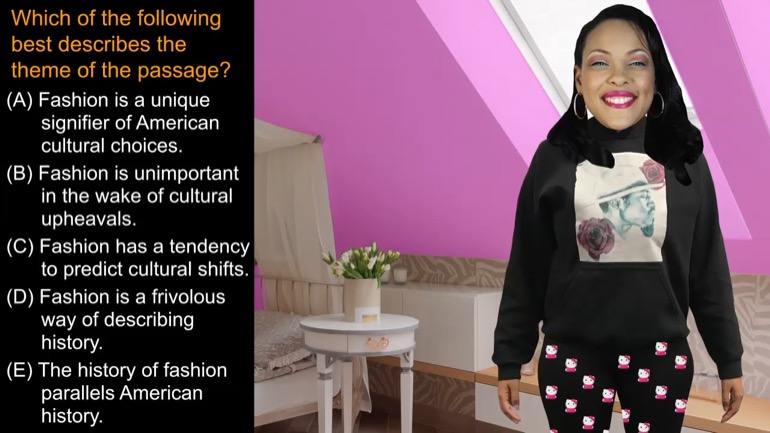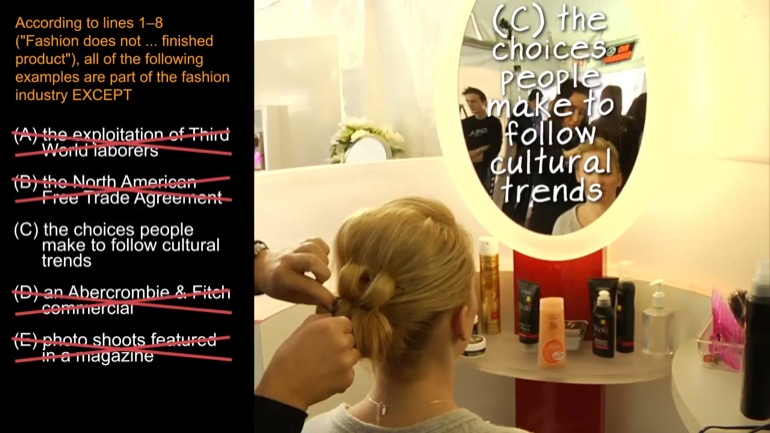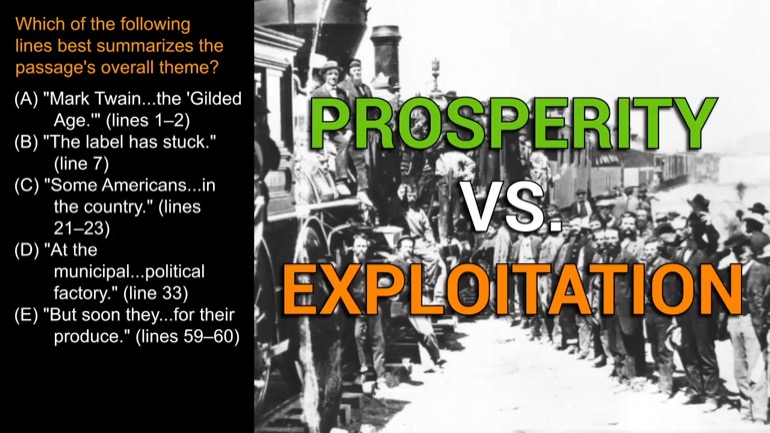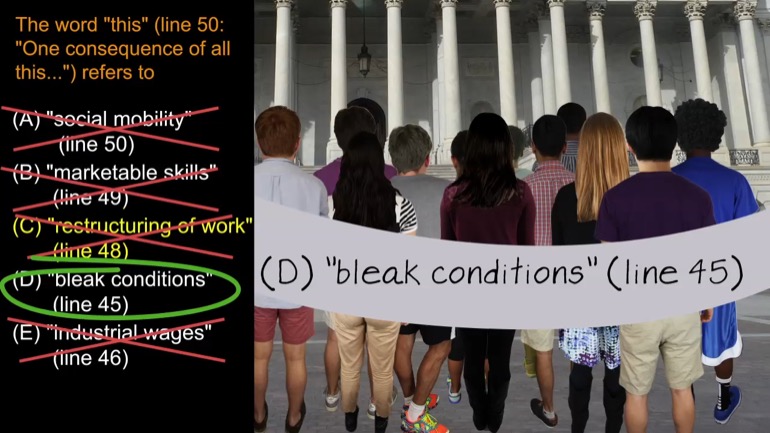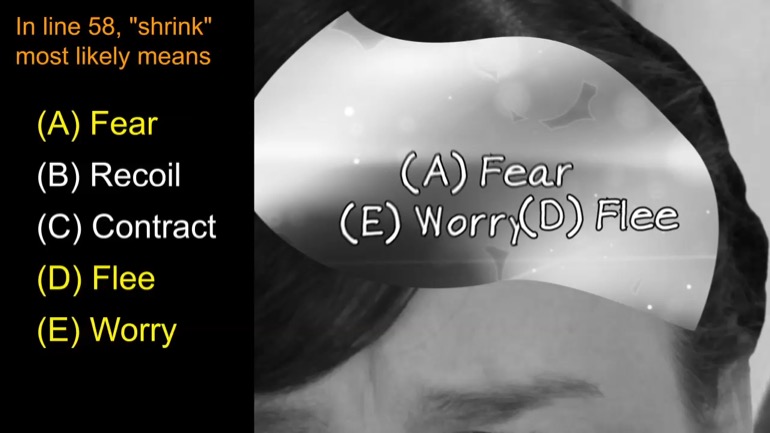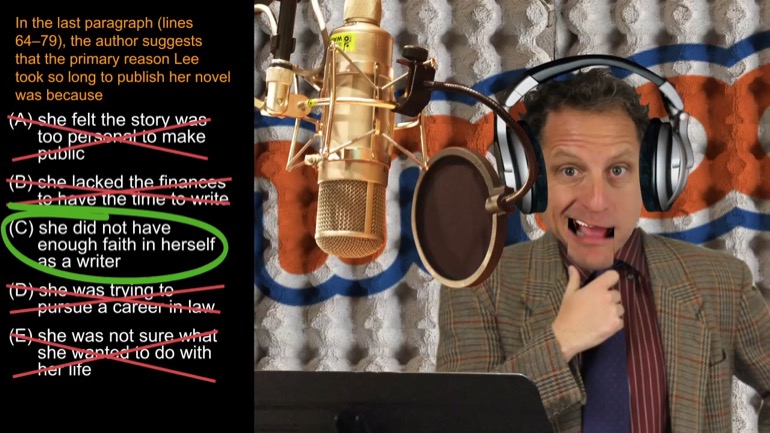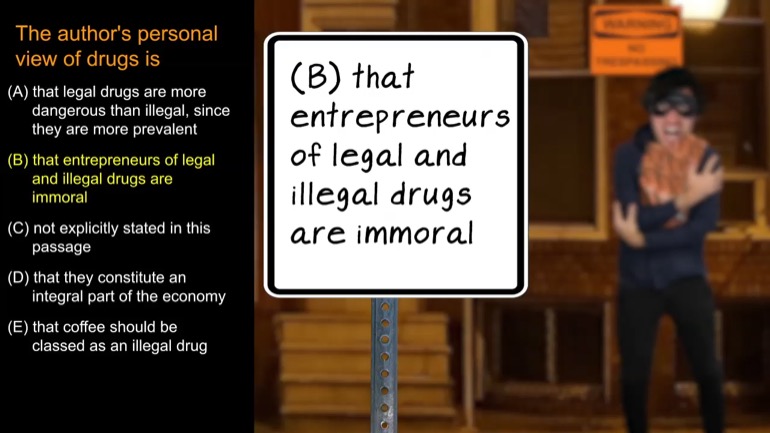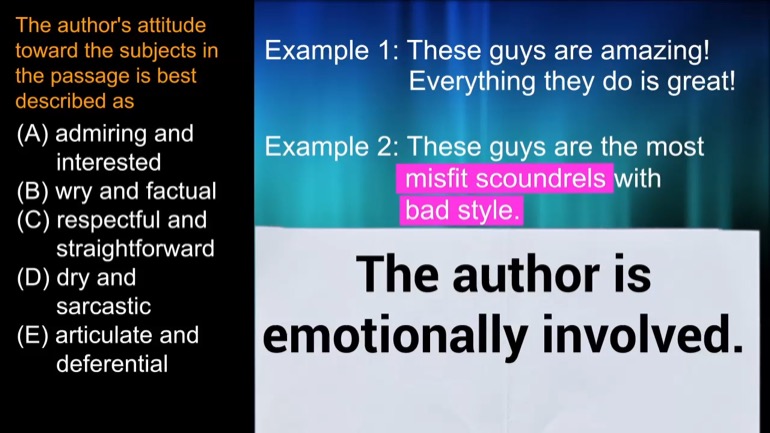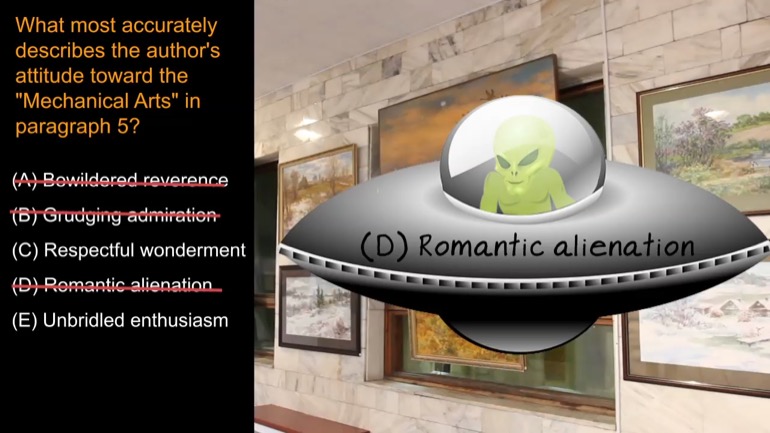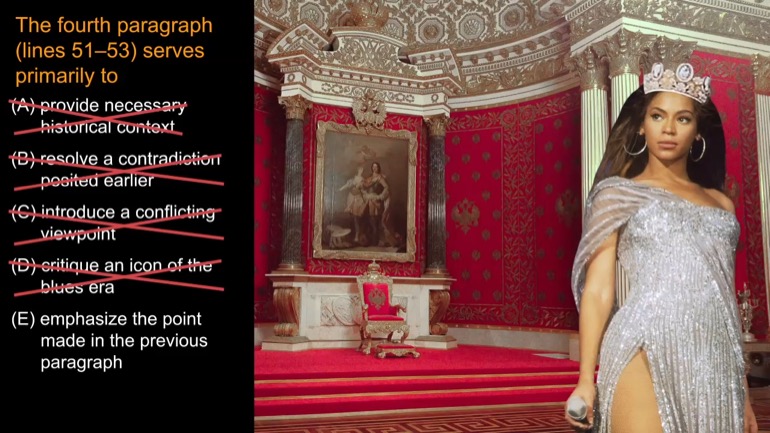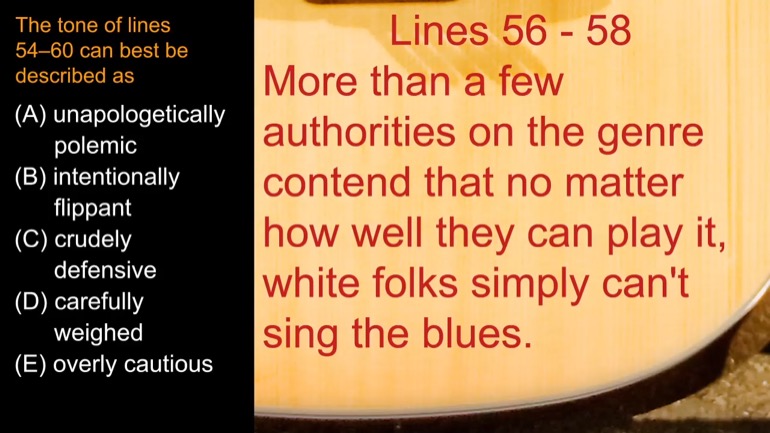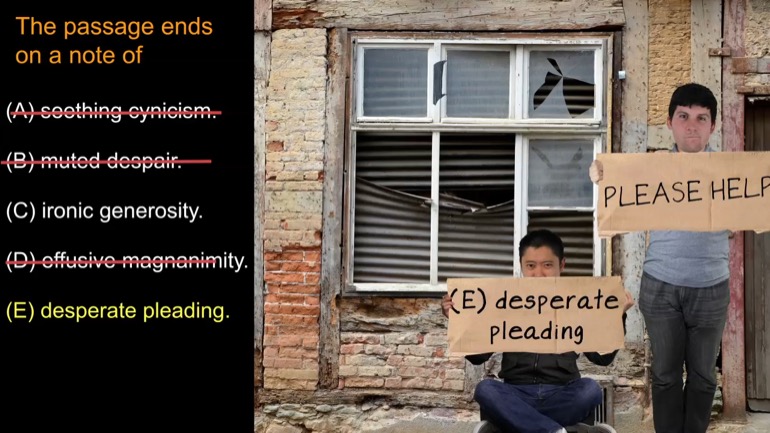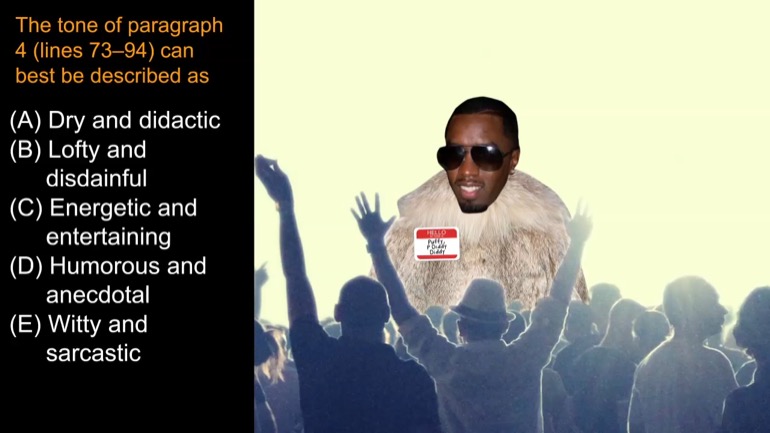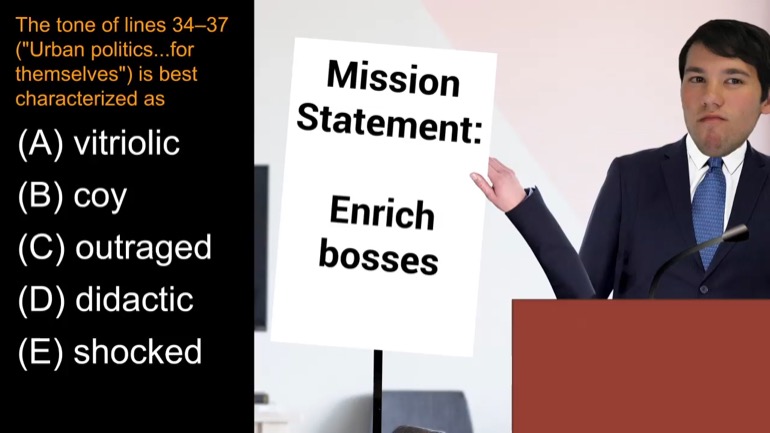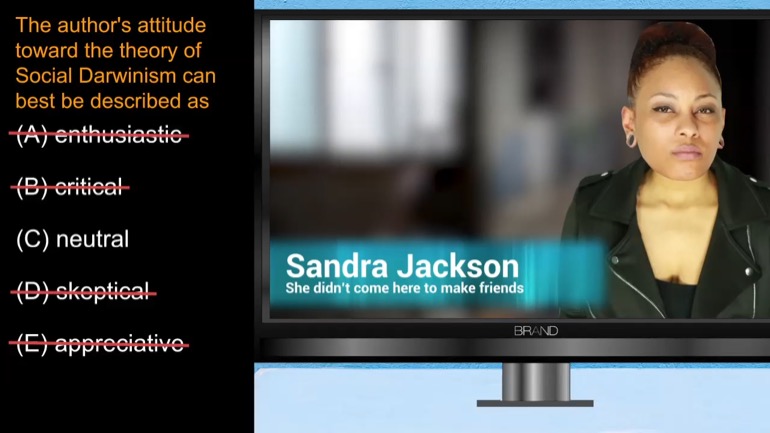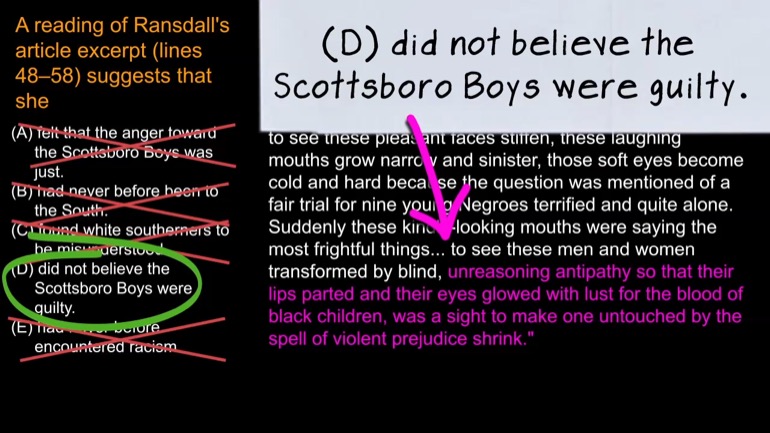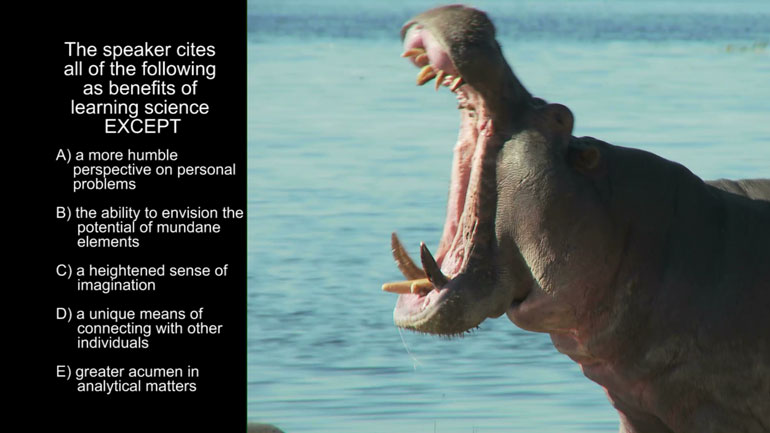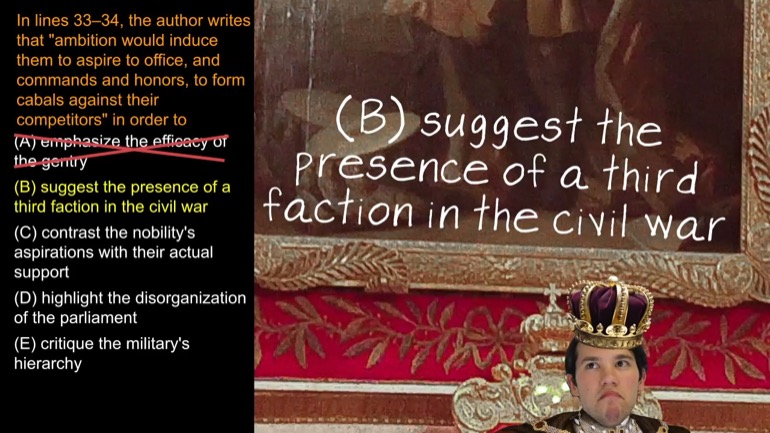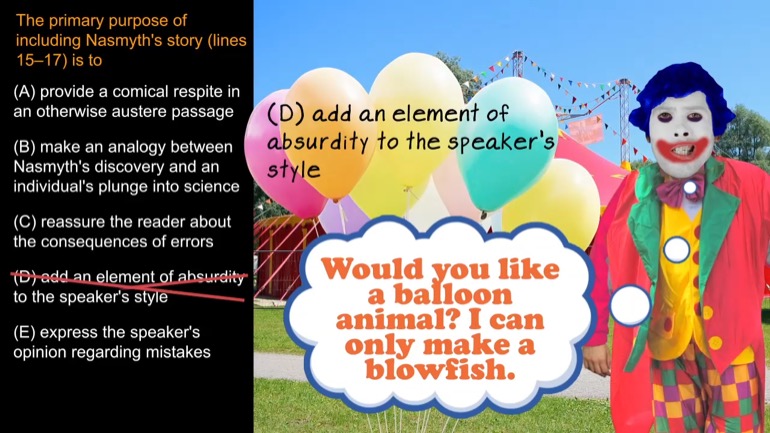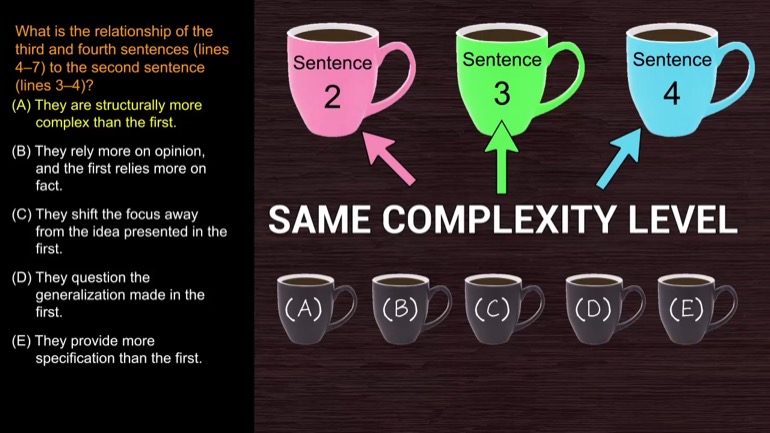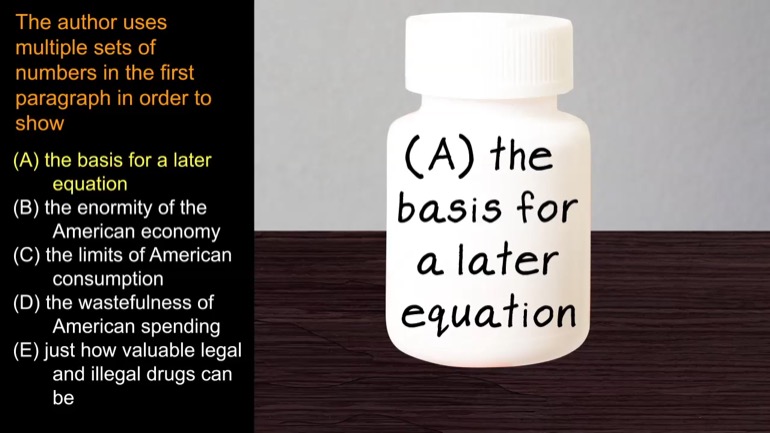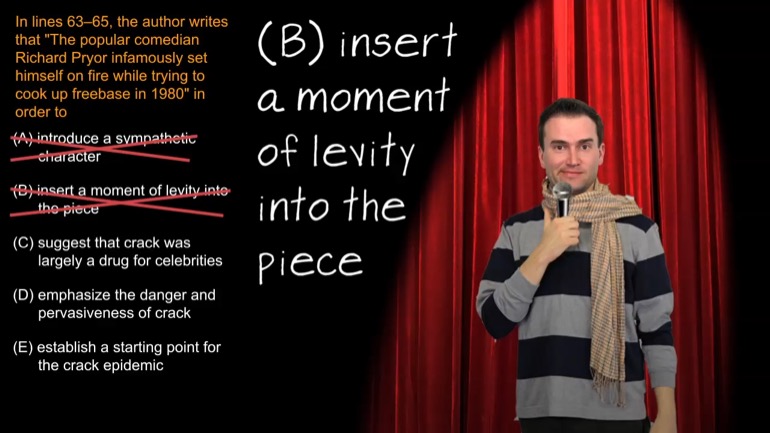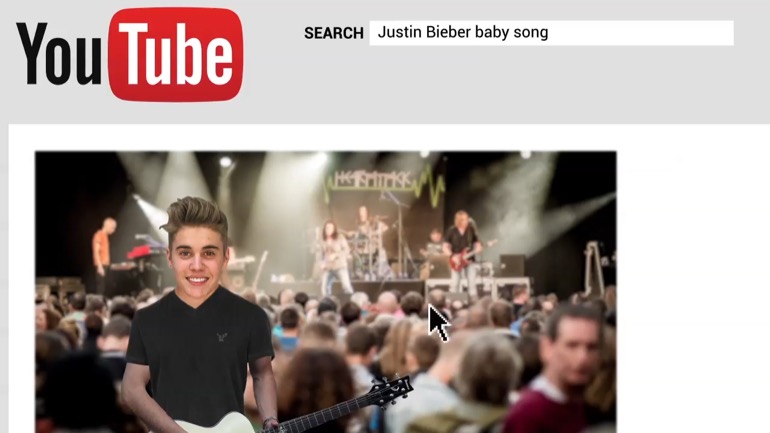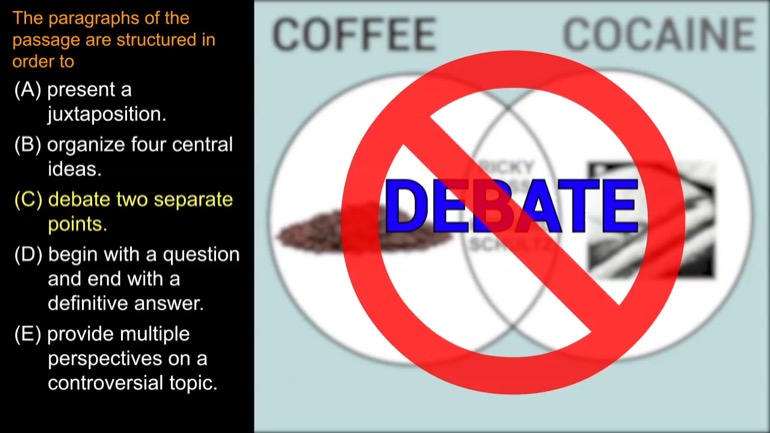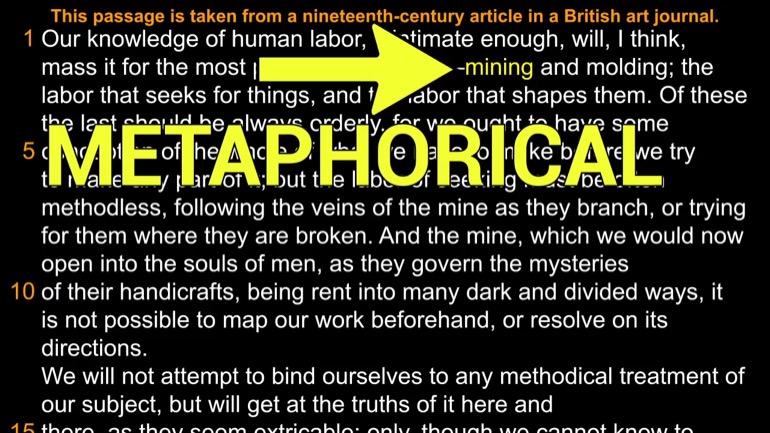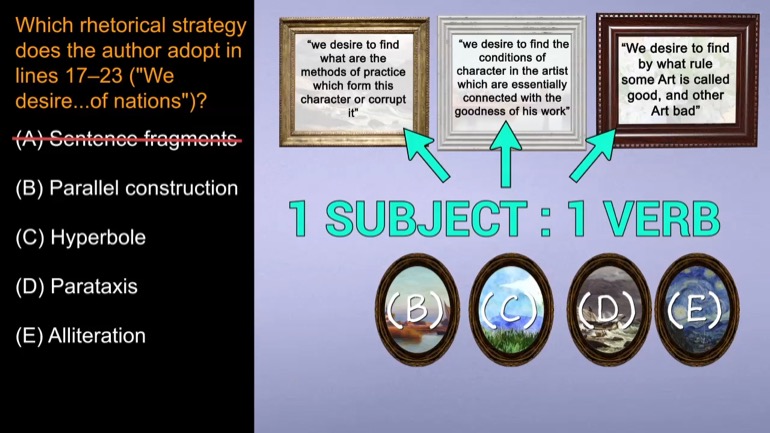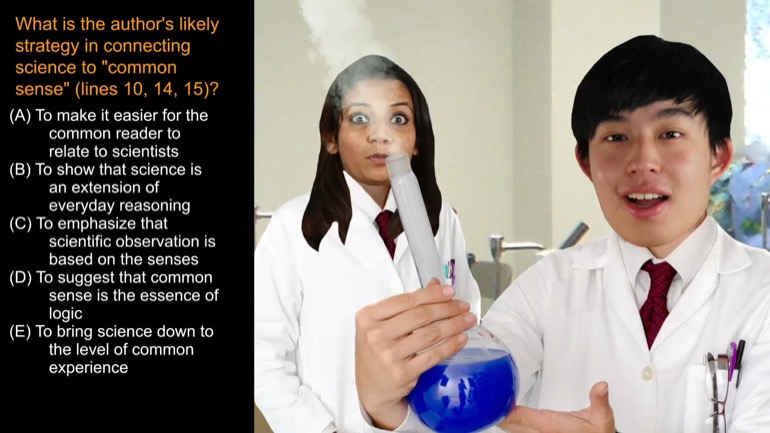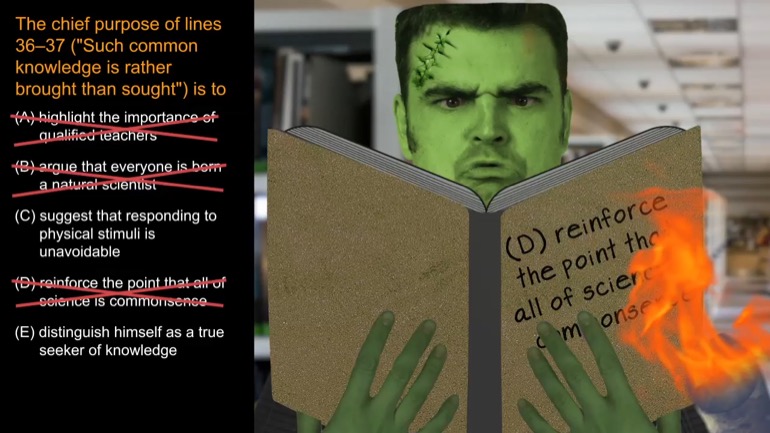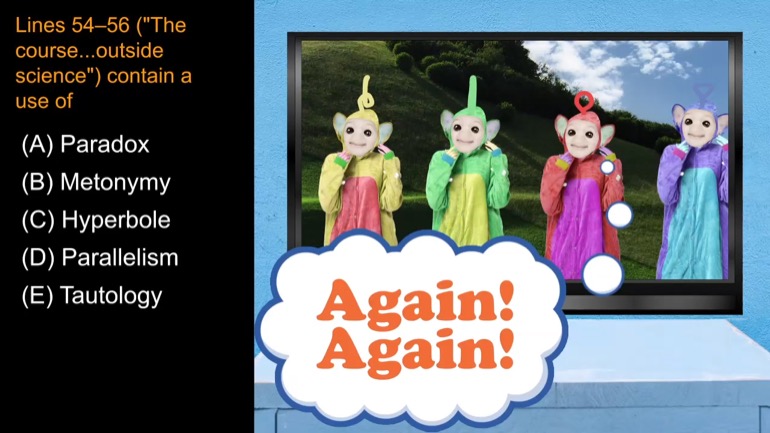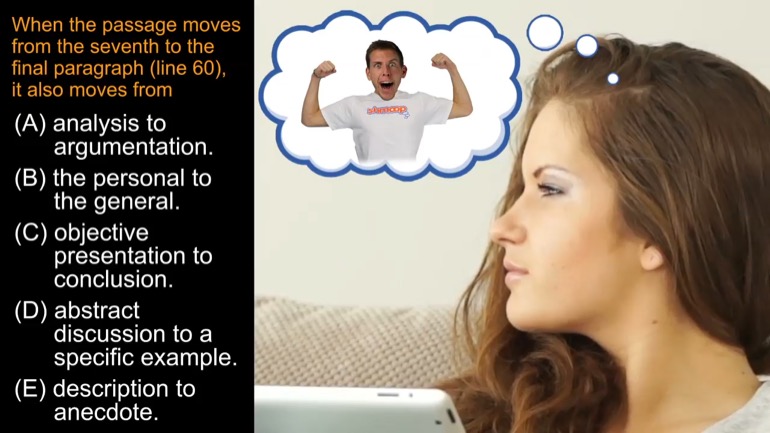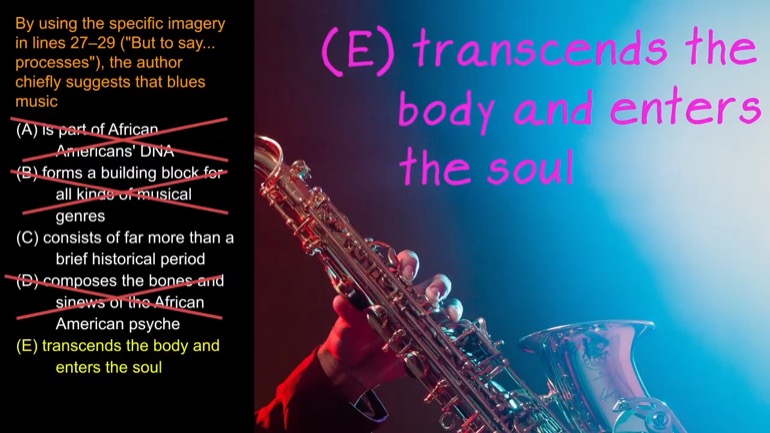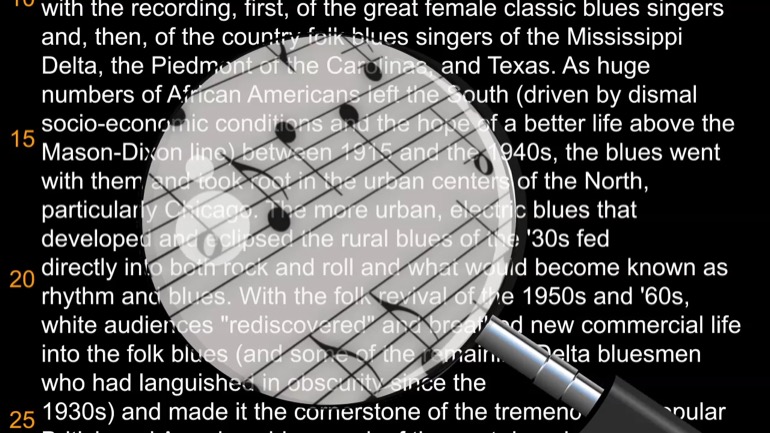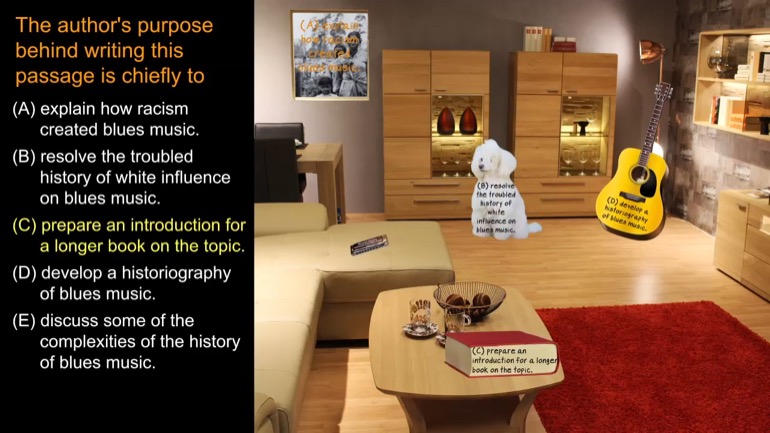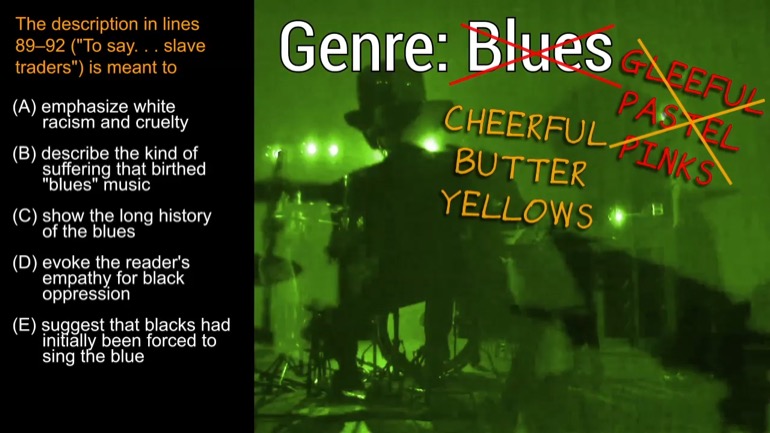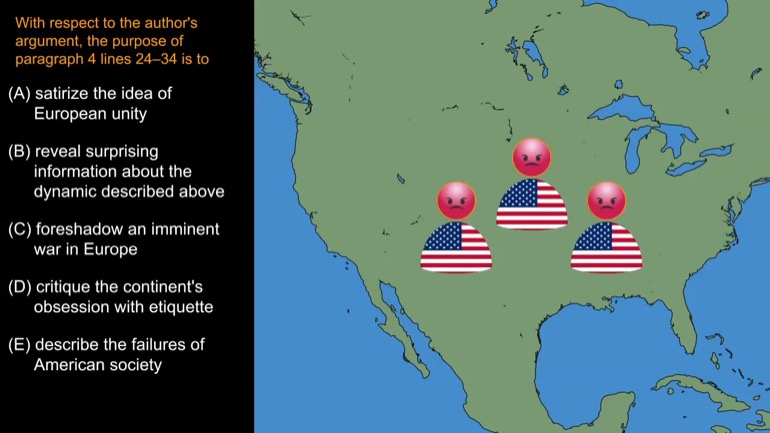ShmoopTube
Where Monty Python meets your 10th grade teacher.
Search Thousands of Shmoop Videos
AP English Language and Composition Videos 171 videos
AP English Language and Composition: Passage Drill Drill 1, Problem 2. What is the speaker's primary purpose in using onomatopoeia in line four?
AP English Literature and Composition 1.1 Passage Drill 7. The primary purpose of this passage is what?
Wishing upon a star may help you pass your AP English Language and Composition test, but answering this question would be a safer bet.
AP English Language and Composition 4.5 Passage Drill 168 Views
Share It!
Description:
Feel like shifting gears and answering a question about shifting tones? We've got you covered. Take a look at this question and see if you can follow the change in tone.
Transcript
- 00:00
[ musical flourish ]
- 00:03
And here's your Shmoop du jour, brought to you by a fear of public speaking.
- 00:07
Some say you should picture the audience naked, but
- 00:10
we've always come to regret that choice.
- 00:15
[ mumbles ]
Full Transcript
- 00:22
[ mumbling continues ]
- 00:34
[ further mumbling ]
- 00:41
Okay. The shift in tone from the first two paragraphs
- 00:45
to the rest of the passage can be best described as... what?
- 00:48
And here are the potential answers.
- 00:51
[ mumbles ]
- 00:55
All right. Wow, this question is vocab city. Good thing we brought a map.
- 01:00
And by map, we mean the dictionary and our brains.
- 01:04
All right, option E says the speaker is being enigmatic,
- 01:08
or mysterious, in the first paragraph, which could be true
- 01:11
with all the question-dodging he's doing.
- 01:15
But E also says that in the second paragraph, the speaker acts
- 01:19
indifferently, meaning that he acts like he couldn't care less.
- 01:22
Well, this just isn't true. It's clear the speaker has
- 01:24
thought a lot about what he's saying, so he's bound to care about it.
- 01:27
If he didn't care, well, he probably wouldn't have shown up to speak in the first place, right?
- 01:33
How about answer D?
- 01:34
Eh. "Succinct" means short
- 01:37
and to the point, while "verbose" means
- 01:40
wordy, wordy, wordy. Like lots of words to describe something
- 01:42
that you could've said just in two.
- 01:45
So D would be a contender if it said
- 01:47
verbose to more verbose, but, uh, well, zing.
- 01:52
We can see where C is coming from.
- 01:54
The speaker does sound a little argumentative when he begins by
- 01:57
telling the committee that they asked him to speak about a stupid question.
- 02:00
He doesn't get conciliatory, or apologetic, in the next paragraph, though.
- 02:04
He just keeps on dissecting exactly why the question's unanswerable.
- 02:11
Well, A would be plausible only if the order were reversed.
- 02:14
The speaker sounds way more imperious, or arrogant,
- 02:17
in the first paragraph when he's dissing the committee's question.
- 02:20
But in the second paragraph, he confidently lays out the rationale behind his opinion.
- 02:24
Choice B does the speaker the most justice.
- 02:27
At first, his tone is searching.
- 02:29
He's pulling apart the question and honestly trying to figure out
- 02:31
how best to answer it.
- 02:33
Then in the second paragraph, he illustrates just why he thinks
- 02:36
the things he does. How much you wanna bet that half the audience
- 02:39
walked out thinking he was brilliant
- 02:42
and the other half thinking he was a jerk?
- 02:47
[ shout ]
Related Videos
Which answer best describes the theme of the following passage? And if you say "fission chips," we'll give you half credit. The AP test graders mig...
AP English Language and Composition 3.5 Passage Drill. How is "forcible" being used here?
Take a look at this shmoopy question and see if you can figure out which device the speaker employs the most.
He or she that answereth this question shall...answereth it. And hopefully feel kind of accomplished. Hit play and figure out the primary rhetorica...
We're not going to give you a speech about how answering this Shmoopy AP English Lit question will help you succeed in life, but if we did, we wond...
